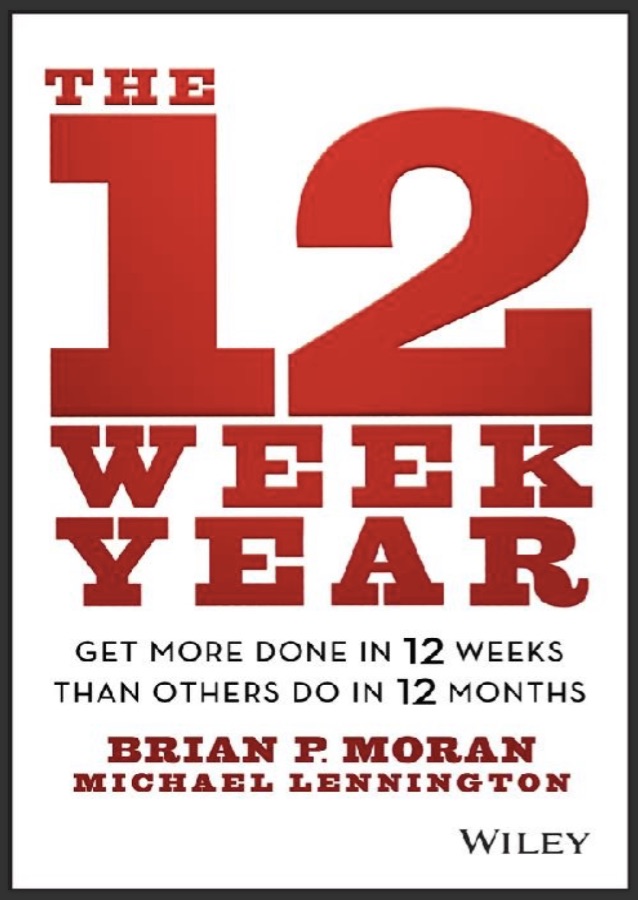Execution is the single greatest market differentiator.
According to Moran and Lennington, 12 weeks is enough time to accomplish or move projects significantly forward and yet short enough time to motivate us to getting things done. The authors argue that we often fail to execute and hit our desired targets with annualized planning because we often think we have plenty of time to get it done. You have an entire year, right?
This is precisely the line of thinking that somehow gets us further behind in executing the plans and attaining the goals. Hence, their solution: The 12-Week Year.
The 12-Week Year posits that we can take on and plan new projects and activities we want to accomplish and work around them on a 12-week period compared to the annual and quarterly planning approaches we’re used to.

About the Book
Divided in to 2 parts, the book teaches us the principles and techniques we need to implement the 12-week year into our personal lives and even careers and businesses. The first part covers the principles and the second part guides us onto using these principles in planning our 12-week year.
There are 8 fundamental components of the 12-Week Year is divided into 3 principles and 5 disciplines. The principles are the foundation of both professional and personal success and these include:
- Accountability – refers to ultimate ownership of one’s actions to achieve desired results
- Commitment – refers to a personal promise that reflects into the future
- Greatness in the Moment – happens the moment one chooses to do the things that needs to be done in order to become great.
The 5 disciplines are required to effectively execute and these include:
- Vision – painting a clear picture of the future, the emotional connection
- Planning – focuses and clarifies priorities and actions
- Process Control – tools and events that align daily actions with critical actions
- Measurement – provides the feedback necessary to make informed decisions
- Time Use – being in control of and intentional with time use to achieve results
My Take
“If we did the things we are capable of doing, we would literally astound ourselves.” —Thomas Edison
I find the steps practical and do-able. The components of the 12-week year are really nothing revolutionary. As the authors have pointed out, it’s always a problem of execution and we fail on it because of a number of reasons. It may be because we are overwhelmed, disorganized or just plainly do not have an idea on how to get started.
My personal favorites were the way they tackled commitment – as a promise to one’s self and how it is different from an interest, accountability – in terms of ownership and not as a yardstick or judgment and the greatness in the moment – because all we really have is now (a.k.a. the present moment).
The only way to know if you really can achieve your goals using this technique is to execute. Apply this on your work, business or a passion project you’ve been planning to get off the ground – like this blog of mine – that you haven’t quite gotten around in your mind yet. This might just work for you. I am going to do the same and maybe you can let me know how if these steps are helping you achieve more.
One of my favorite quotes is from Franklin D. Roosevelt, “Above all, try something.” Don’t settle for not getting what you want, failing on your promises and missing the things you know you deserve. When you really want it that bad, then do something, do everything, do whatever it takes – make sure you have exhausted all the possibilities before you even think about quitting or changing your mind about wanting something.
Where to get a copy
You can get a copy of the book from the 12-Week Year website here. Hard copies, Kindle version and MP3 CDs are available on Amazon.
______
Moran, B., & Lennington, M. (2013). The 12-week year: Get more done in 12 weeks than others do in 12 months. Hoboken, NJ: John Wiley & Sons, Inc.
